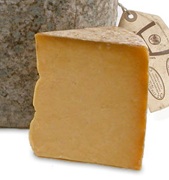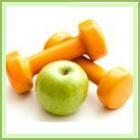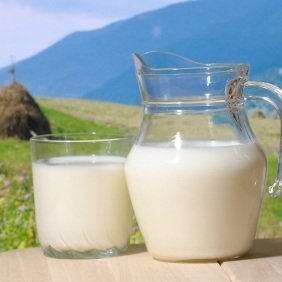Lose Weight
![]() Calories in Food
Calories in Food
![]() Calories in Dairy
Calories in Dairy
![]() Calories in Cheshire Cheese
Calories in Cheshire Cheese
Calories in Cheshire Cheese, Cheshire Cheese Nutrition
How many calories in Cheshire cheese? See below, the Cheshire cheese calories for the different serving sizes. We provide you with Cheshire cheese nutrition facts and the health benefits of Cheshire cheese to help you lose weight and eat a healthy diet.
Cheshire cheese originates from the Cheshire region of England. It’s a light yellow, hard, crumbly cheese with a mild. It’s made from cow’s milk and is available in both pasteurized and unpasteurized milk. As the cheese matures, so the color darkens very slightly.
Annatto, a natural coloring made from berries from the Achiote tree, is often added to this variety of cheese to give it an orange color. It does not affect its taste.
It is high in fat, approx. 30g per 100g, and also relatively high in salt, when compared to some other cheeses. Reduced fat and salt varieties are available.
It provides a good source of vitamins A, B1-B3, B5, B6, B12, calcium, protein, phosphorus, selenium and zinc.

As with most cheese, it is great for healthy bones and teeth. Other Cheshire cheese benefits are thought to include helping us feel good, given the presence of vitamin B12.
Compare calories in Cheshire cheese with the other calories in cheese and dairy products.
Cheshire Cheese
Refuse: 0%| Serving Size | Calories per Serving |
| 100 grams | 387 kcal (1620 kJ) |
| 1 oz, 28.35 grams | 110 kcal (459 kJ) |
Cheshire Cheese Nutrition Facts
| Nutritional value per 100 g (3.5 oz) | |
|---|---|
| Proximates: | |
| Water | 37.65 g |
| Energy | 1620 kJ (387 kcal) |
| Carbohydrates | 4.78 g |
| Fat | 30.60 g |
| Protein | 23.37 g |
| Minerals: | |
| Calcium, Ca | 643 mg (64 %) |
| Iron, Fe | 0.21 mg (1 %) |
| Magnesium, Mg | 21 mg (5 %) |
| Phosphorus, P | 464 mg (0.5 %) |
| Potassium, K | 95 mg (2 %) |
| Zinc, Zn | 2.79 mg (19 %) |
| Copper, Cu | 0.042 mg (2 %) |
| Manganese, Mn | 0.012 mg (0.6 %) |
| Selenium, Se | 14.5 mcg (21 %) |
| Vitamins: | |
| Thiamine (Vit. B1) | 0.046 mg (3 %) |
| Riboflavin (Vit. B2) | 0.293 mg (17 %) |
| Niacin (Vit. B3) | 0.080 mg (0.4 %) |
| Pantothenic acid (B5) | 0.413 mg (4 %) |
| Vitamin B6 | 0.074 mg (4 %) |
| Folate (Vit. B9) | 18 mcg (5 %) |
| Vitamin B12 | 0.83 mcg (14 %) |
| Vitamin A | 233 IU (5 %) |
| Percentages are relative to US Recommended Daily Intake (RDI) for adults. | |
Author: Lana Soko
You Might Also Like:
Like This Page?
|
Share This Page:
|
Search Our Site:

Free E-Book:
We Recommend:
Looking to get your body into great shape? Get the very best results for your efforts and money! Save your valuable time from surfing the internet. These are theBestselling Weight Loss Programs

Programs that work and have thousands of satisfied customers worldwide!

 |




